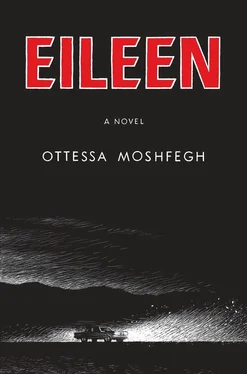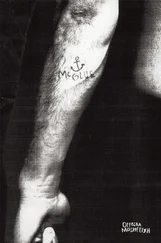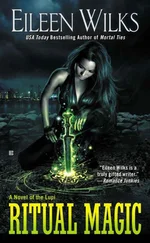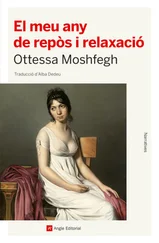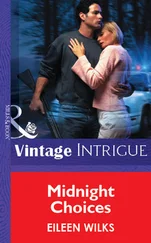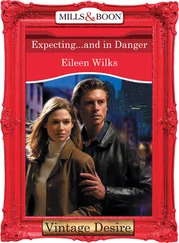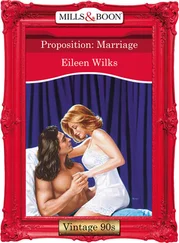“What if Lee was lying?” I asked. “What if he made it all up? He’s had years to think up a good reason to kill his dad, blame his mom. Mrs. Polk could be innocent. Don’t you think?”
“Eileen.” Rebecca looked down at me sternly, folded her hands across her heart. “If you saw this boy’s tears, heard the story in his own words, felt him shake and cry, you wouldn’t doubt him for a second. Look,” she said, sliding the photo of Mr. Polk up next to the gun. “This man deserved far worse than he got. Don’t you see that?”
I looked again at the photo, those secretive, side-cast eyes. The dead body was so strange, so unsettling, I had to believe he got what he deserved. To believe otherwise would have been too much. Back then I believed whatever I could to avoid the terrifying reality of things. Such is youth. “OK,” I nodded. “So you think the gun will work?”
“Memory is a fickle thing,” Rebecca answered. She was calmer then, her anxieties seemingly subdued. “Mrs. Polk is in deep denial. She’s kept her secret so well, probably never told a soul, she may have a hard time even just remembering what the truth actually is. People pity her, you know. People assume she’s just sad and lonesome. Nobody wants to challenge a woman in that state. Nobody even wants to be around someone like her, such a victim. We assume she’s pathetic, just miserable. But no one’s ever asked her the right questions. I’m the first to care.” Rebecca pulled her hair back, braided it skillfully with quick fingers. She was so pretty, even in the harsh kitchen light, even with her eyes red and puffy. “She hadn’t visited Lee once since he’d been at Moorehead,” she said. “Not until I called her, after I read his file.” She seemed to drift off for a moment, thinking and staring at the cellar door. “Eileen,” she said finally, turning and pounding lightly on the table with her fist. “If Mrs. Polk believes her life is at stake, she’ll have no reason to deny anything. She’ll be free to confess. We can set her free this way, whether she thinks she wants that or not. She’ll thank us later. This is a good thing we’re doing. You’ll see. Here.” Rebecca pulled my scarf from around my neck. “We’ll cover your face. It will be scarier for her this way, and she won’t know who you are. She won’t be able to recognize you from Moorehead. If she does, it might confuse things.” She tied my scarf around my head, then pulled it down over my face so that only my eyes were showing. My body tingled from her touch as she swept the hair out of my eyes. She giggled. “You look fine,” she said. “Now hold up the gun. Show me how you’ll hold it.” I did as I was told, holding the gun with both hands, extending my arms out straight, lowering my face. “That’s very good, Eileen.” Rebecca smiled, put her hands on her hips and clucked her tongue. “Quite a gal,” she said again.
I watched her go to the cellar door, slide the chain off the lock, and pull it open to a dark and steep staircase. She reached around the air and tugged on a dirty string. The light went on. She turned, breathy and smiling, and gripped my shoulder. “Come on,” she said. I picked up my purse with my free hand and followed her down the stairs.
• • •
R ita? It’s just me,” Rebecca called out. Her voice was cautious, kind, the voice of a nurse or teacher, I thought. It surprised me. The scarf over my mouth made my face sweaty and tickled my nose, but I could see fine. The stairs were so steep, took so long to descend, it felt as though we were walking into the bottom of an old ship or tomb. The light from the bare bulb swung around, throwing sharp black shadows that stretched and contracted across the plain dirt floor. I walked carefully, step by step, not wanting to fall and embarrass myself. A new calm came over me down there. The basement’s dark, cool dampness arrested my racing anxieties, softened the loud thudding of my heart. I thought of Joanie’s busted-up hardcover Nancy Drew mysteries. The Cellar of Secrets. Of course I’d been grossly miscast in my role as Eileen the conspirator, Eileen the gun-wielding accomplice, but once underground, I was becalmed. That basement was somehow my domain. At the bottom of the stairs, I dug my heels resolutely into the dirt. “Be cool,” Rebecca said to me. But I was cool. The gun in my hand was level and steady. When I turned the corner, I saw Mrs. Polk. There she was on the floor, legs akimbo, with her back against the wall. She had on dirty white bobby socks, a yellowed nightgown with lace at the throat. Her hair was loose and frizzy, face wet with tears. I have that picture set deep in my mind. She looked like a fat, old Cinderella, pale eyes darting back and forth innocently from Rebecca’s face to mine. Rebecca had tied the woman’s wrists together with the belt of her housecoat and strung them up to a pipe in the ceiling. There was little else to get tied to down there — an old rusty reel lawn mower, a broken wooden chair, a pile of wood pieces that looked like dismantled furniture — a dining table or a crib, perhaps.
“Don’t shoot,” the woman cried, uselessly trying to cover her face with her bound hands. “Please,” she begged. “Don’t kill me.” It seemed ridiculous at the time. Of course I wasn’t going to shoot her, I thought. I was glad my face was covered. It kept me from consoling Mrs. Polk with an assuring smirk or smile. Still, I kept the gun raised, pointed in her direction.
“She very well may shoot you,” said Rebecca softly, coaxingly, “unless you tell us the truth.”
“Which truth?” the woman cried. “I don’t know what you want. Please.” She peered up at me, as though I had an answer. I remained quiet. Even down there, pointing the gun at the poor woman, the situation had a curious element of make-believe. I may as well have been playing a party game, seven minutes in heaven, grappling around in the dark, doing things I’d never do in the light of day. I’d never played any of those make-out games, but I imagined that once you came out of the closet, you acted as though nothing had changed. No damage had been done. Everything seemed to go back to normal. Under the surface, however, either your popularity and prestige rose, or if you didn’t perform well, your reputation suffered. The stakes down there in the basement were still only as high as Rebecca’s esteem for me, my own happiness. Yet I had faith that her plan would work: Mrs. Polk would feel so relieved when she admitted what she and her husband had done to their son that she’d actually thank Rebecca for extracting the long-buried truth, saving her from her haunted world of secrets and lies. She could reunite with her son on new terms. She could live again. And Rebecca and I would be best friends forever as a result. Everything would be beautiful.
“Please,” said Mrs. Polk. “What do you want from me?”
“An explanation.” Rebecca puffed her chest out, put her hands on her hips. “We know it wasn’t easy for you, Rita, married to a man who likes little boys. We understand that you’ve been suffering alone in this house with your guilty conscience. It’s obvious you’re having a hard time. Just tell us why you helped your husband do what he did — why you gave Lee the enemas. Why didn’t you tell anybody what was going on? Tell us. Get it off your chest.”
“I don’t know what you’re talking about,” Mrs. Polk asserted, averting her eyes. “I’d never do anything to hurt Lee. He’s my son. My flesh and blood. I’m his mother for Christ’s sake.”
“Eileen,” Rebecca said. I started at my name. “Do something.”
Holding the gun out, I approached Mrs. Polk. She let out an odd warbling scream, then yelled out again and again for help. A dog started barking somewhere aboveground and the sound echoed around the cellar between the woman’s cries. Rebecca covered her ears with her hands.
Читать дальше
